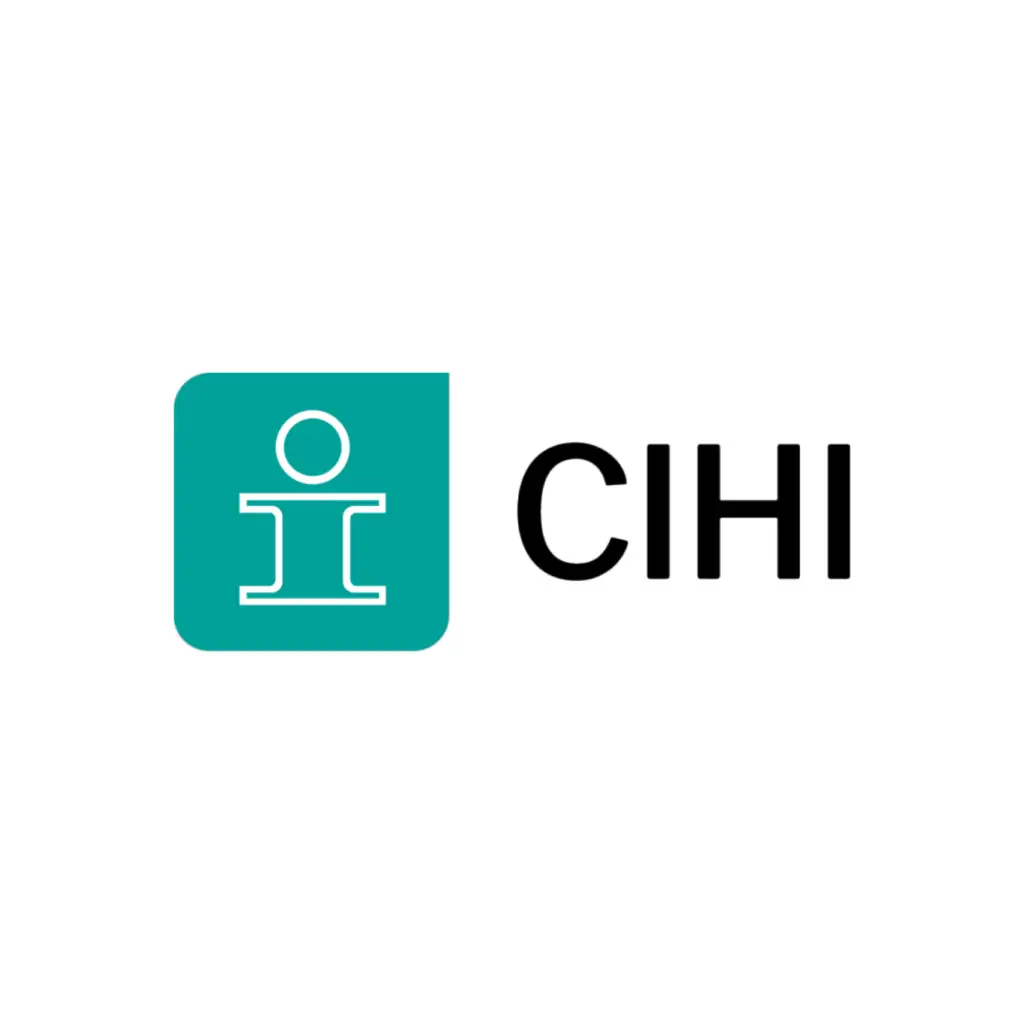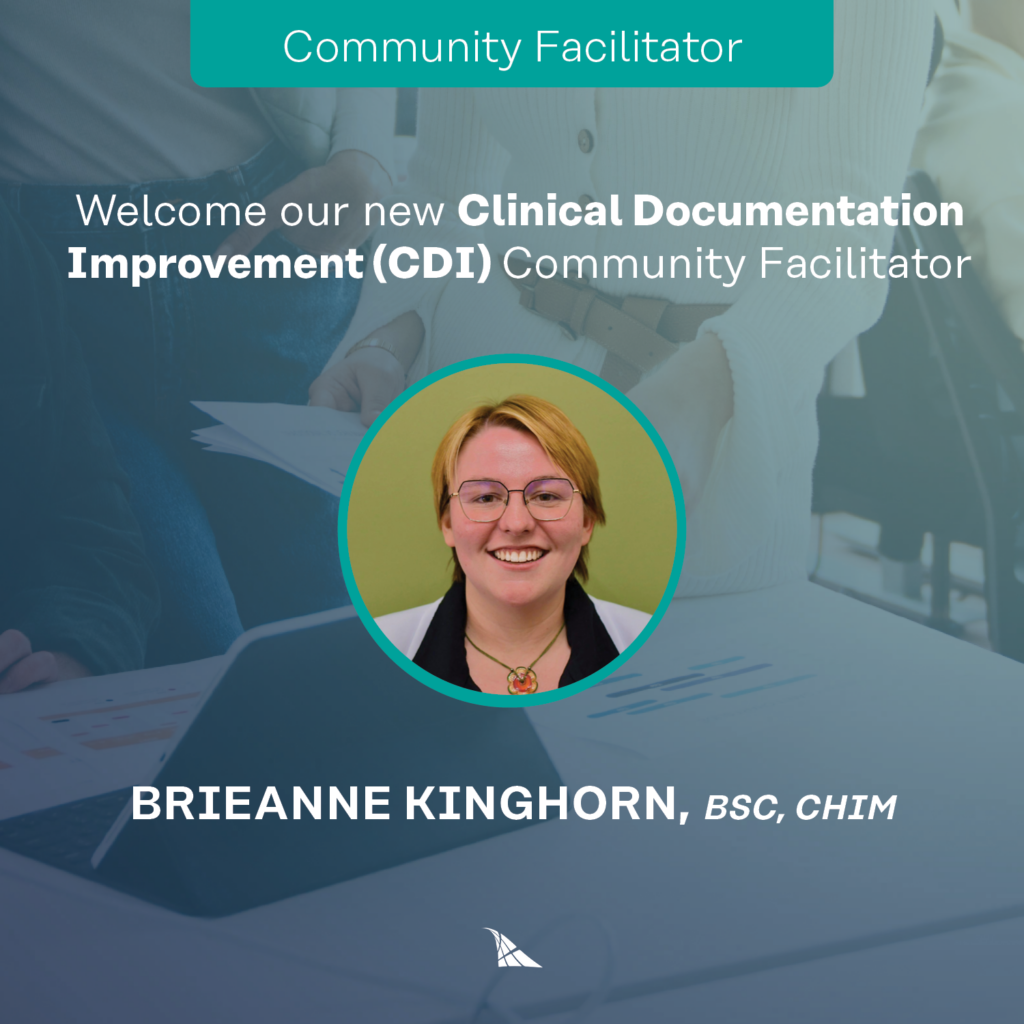Last summer, we chatted with our new board chair, Patricia Visosky, MSc, Ph.D., CHIM. Dr. Visosky is the coordinator for the health information management program at Douglas College. Prior to that, she was a faculty member of the bachelor program in HIM at the Higher Colleges of Technology in the United Arab Emirates for 17 years. Dr. Visosky is a certified HIM professional and has a keen interest in health informatics. She has obtained her master of science in health informatics and recently completed doctoral studies in health research with a focus on health informatics curriculum.
CHIMA: Congratulations once more on becoming our new board chair. Let’s begin by talking about your journey into health information. Can you tell us what sparked your interest in health informatics?
Dr. Visosky: I’ve always been interested in health and knew I wanted to be a part of a health care team, but not necessarily involved in direct care. So, I started in transcription, moved into coding, and then data analytics. And that’s where I found my passion: telling the patient’s story with data and helping health care teams and policymakers beyond the hospital to make critical decisions. This sparked my interest in data analytics and informatics, and I continued in that. I worked in quality management and clinical trials, and then I was fortunate to be invited to teach in the Middle East, which was a fantastic opportunity to not only share what I’d learned but also learn so much from my students. It’s such a privilege to have this capability and competency.
CHIMA: Congratulations on completing your Ph.D.! Can you share a bit about your research and some of the work you’ve been doing in this regard?
Dr. Visosky: My research focused on the preparedness of future health care professionals to use health informatics applications upon graduation. My study was done in the United Arab Emirates, and then I completed it when I moved home to Canada. My study confirmed that we continue to work in silos and that we can do more to prepare our students to work with all the various ways information systems will be used now and in the future in the health sector.
At Douglas College, we have an academic electronic health record and a health information system that’s used by all the programs within the health sciences division. This has enabled us to do some interdisciplinary projects with our nursing students and pharmacy students from UBC. When we plant the seed of quality health information, students begin to understand that the data and information they’re inputting into a patient’s record is viewed and analyzed by the HIM professional. So, this has been a great and successful partnership that contributes to a better understanding of the interconnectedness of the information system, our expectations and potential as a profession, and, ultimately, the impact of quality health information on the patient in the community. And we’ve had the opportunity to share the results of this project at local and international (IFHIMA) conferences.
CHIMA: Having taught for many years, and with the prevalence of digital health, what opportunities do you see arising for new and recent graduates of health informatics and health information programs?
Dr. Visosky: This is exciting because the opportunities for health information graduates are increasing. Historically, graduates have aimed for coding positions and still do. Many prefer to start there, and it is a brilliant way to start your career because you learn so much and interact with other departments in the hospital as your knowledge and confidence grow in data classification.
But many of our graduates from our post-baccalaureate diploma program, who came to us with a background in health care, have been hired directly into data analytics positions with the government and different departments and registries. With their added HIM knowledge, they are well equipped to work with health data.
Like the College, we’ve provided our students with career pathways by adding extra data analytics courses to our program, which have been really beneficial in preparing graduates to take on positions in this field. So, the main opportunities I see for recent graduates are in data analytics, data governance, and informatics; a lot of our students are getting positions in these fields.
CHIMA: You speak a lot about your students and helping them succeed in health information. What drives your passion for teaching?
Dr. Visosky: Perhaps the most significant thing I love about teaching is seeing what my students do with data. They take advantage of all the Canadian-based data they can now access and produce remarkable reports, info sheets, and all kinds of documents and reports they could be expected to produce after graduation. I’m always amazed by what they can do with the data I provide them. It sparks an interest in them, and they want more—they dig for more and find it. Their passion keeps my interest going as well, and I consider it a privilege to be part of their academic journey.
CHIMA: Can we take a step back to talk about your experience in Abu Dhabi? I understand you were there for about 16 years. Are there any similarities or differences between their approach to health informatics and ours?
Dr. Visosky: That’s a great question. There are many similarities, but the difference would be the privilege of education. I had the privilege of working at a women’s college; it was a degree program, and these young women came well prepared and keen to learn more. When I went there in 2000, they were the first group of women who were able and allowed to pursue higher education. So being part of that transformation was such a gift.
I see similarities in planting the seed about data collection and use—this is how we collect data, and this is how we tell a patient’s story using ICD-10. The UAE had decided to utilize ICD-10-AM, which is the Australian classification system. The world of health information was a new opportunity for these young women. They found coding difficult because they had to translate the patient stories I gave them into English. Naturally, it took some time for them to adjust, and we had to have extra coding classes. But when they understood and saw what they could do with classified, coded data, they took off—just like the students here.
It was amazing to watch them take the lead in informing the academic sector, and primarily the health sector of the UAE through their knowledge of health informatics. Many of our graduates are in senior leadership positions today. They’re brilliant young women, and I’ve continued to be in touch with them.
At the time, Western-styled health care was in its infancy, and everything was based on Canadian health care and education. InterHealth Canada managed the health care systems in the UAE, and the academic sector mirrored our education systems as well, but it was a global faculty pool, and I was always happy to help others and learn from colleagues from South Africa, Australia, Japan, and around the world.
As they started to change the organization of patient records and introduce electronic health information systems, people began to realize the importance of documentation and keeping track of the patient’s story. The government’s support was amazing, and because I got to work with the young women, I was immediately adopted into their families and culture. So, I was always invited to weddings and asked to come and see a new baby. When their grandparents celebrated, I was always invited and treated as a guest of honour. It was hard not to fall in love with the culture.
CHIMA: You talk about the language barrier these women overcame in Abu Dhabi, and here in Canada, some recent and aspiring HIM professionals face the same challenge. What tips would you share with these individuals?
Dr. Visosky: I would encourage people whose first language is not English or French to take advantage of language support services in their vicinity. They’ll always worry about it, and I understand that, but I urge them not to lose track of their own language. In Abu Dhabi, some of my students were eventually required to work in Arabic, so the first language is always useful. I particularly love working with people from all over the world; I gain from their experience, and it makes our work so much richer.
So, I encourage people to be confident in their level of English, embrace language support services, and maintain their cultural perspective.
CHIMA: What are your expectations as our new board chair?
Dr. Visosky: First of all, it’s such a privilege to serve as the board chair and be a part of the team. My expectations are that I can help establish and consolidate all the great initiatives and changes that Jeff Nesbitt, the CHIMA team, and the board have initiated.
An example is the new Health Information-Certified (HICA) pathways. I have referred to pathways that impact us in the academic sector often, and I do so because of the nuances and numerous opportunities within our profession. So, I’m excited about the new pathways that support learning and knowledge for different individuals. My nursing faculty colleagues at Douglas College are also excited about this because they see among their students those who are interested in health care management and data usage.
We have also launched a new five-year strategic plan, modernized our curriculum standards to elevate coding, and formed a new medical coding working group to spur conversations on national coding standards. These new developments will create even more opportunities for health information professionals across Canada, and it’s a wonderful opportunity to contribute to this and work alongside my colleagues on the board.
CHIMA: Any final thoughts to share with health information professionals or people wanting to join our profession?
Dr. Visosky: I don’t know of many professions with diverse opportunities like ours. Health information really is limitless. Data and information systems integrate with various sectors, including health, government, and legal. So, whatever a person’s interest, they will find something that resonates with them. I’ve been in this profession for a long time, and I’ve never been bored because it’s so dynamic.
Finally, there is no end of support from CHIMA, the College, and the professionals across the country. There are numerous networking sessions and professional development resources to help you connect with a community of health information professionals and bridge knowledge gaps. Go for it; this is an amazing career.



